Béla Barsi
출생 : 1906-01-23, Palotaújfalu, Austria-Hungary [now Hungary]
사망 : 1968-04-30

Editor
The story focuses on people who suffer from different kinds of disabilities, but they also live whole lifes, they are people who just want to lead a normal life, to work and to prevail.

Foglár
1860년대 말, 헝가리에서 코슈트 러요시가 이끌었던 헝가리 혁명이 진압되고 오스트리아가 헝가리의 패권을 다시 잡았던 시기를 배경으로 하고 있다. 저항군들은 고립된 요새에 감금된다. 수용소의 교도관들은 이 수감자들 중에 반란군의 지도자들이 있다는 사실을 알게 되고 그들의 색출을 위해 온갖 고문을 자행한다.

Tarnaváry
On the novel by Mór Jókai. The first half of the XVIII century. Several decades of life of a noble family Karpati.

13 March 1965 (Hungary)
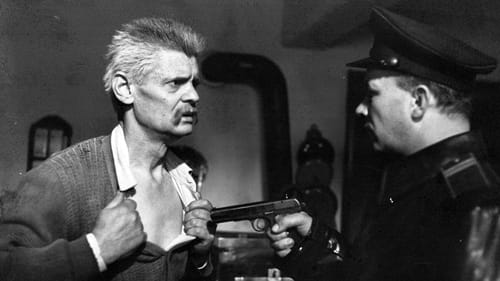
Chairman of the Council
A crusading newspaper reporter covers the Soviet invasion of Hungary in 1956. Initially critical of the communists, the feature later espouses the virtues of the social changes implemented since the invasion. The title refers to the period of time the reporter spent interviewing witnesses to the invasion.

Lézengõ magyar katona
In the final days of World War II, a young Hungarian is making his way home, through countryside full of the debris of war, when he is captured and imprisoned by Russians. Left in the custody of a young Russian soldier, the two youths form a friendship in spite of not speaking each other's language.
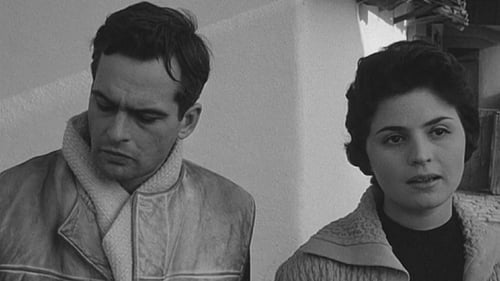
father Ambrus
전도유망한 젊은 의사 ‘암브루슈’는 은퇴한 노교수가 존재감을 증명하려고 집도하는 심장 수술에 참여한다. 수술 이후 자신의 삶에 회의를 품게 된 ‘암브루슈’는 목적 없는 인생과 미래를 알 수 없는 사랑에 지쳐 고향으로 떠난다. 그리고 귀향길에서 아버지의 신념과 인간애를 느끼며, 다시 새로운 희망을 얻는다. (한글자막 제공_전주국제영화제)

Sándorovics Cirill

1920 in a mining town in the country-side. The team of children led by Ferkó Boda fish guns and a flag of Red soldiers out of the local lake.

Bíró
This drama about a boorish non-conformist takes place in Hungary after the war and is dulled a little by political overtones but is still an engaging story. The setting is the countryside, where an independent, landowning farmer busies himself in his free time by bedding down the women on his farm and then tossing them aside. One such ill-treated lass ends up marrying a young man who is in charge of a communal farm, a farm the womanizing "beast" of the title is later forced to join. The arrogant, formerly independent farmer does not reform his ways and is soon chasing after the young manager's wife, the woman he dropped not that long ago. The results are disastrous.

Lightening

Útkaparó

Dózi

October, 1956. Colonel lieutenant Szabó sends a platoon with the mission of calming the people demonstrating in the town. The platoon is lined up under the command of Lieutenant Csendes and the soldiers aim at the demonstrators. Szusza Kis changes sides, and Csendes is unable to shoot at his childhood mate. They withdraw.

István Papp
The spring of 1919. Karikás Frigyes reorganises brigade 39 at the Tisza. His most devoted soldiers are Korbély János and his followers, who remain faithful to the political commissioner under all circumstances.

Mihalik
The "sleepless years" in this propaganda piece by director Felix Marlassy occur on Csepel Island, an island south of Budapest that is home to an armaments factory. The factory workers are shown being exploited by imperialists, capitalists gone berserk, and fascists, more or less in that exact chronological sequence. The heavy-handed approach does much to undercut the belief that when socialism finally takes over, the lives of the workers are brought up to a human level. In this instance, audiences might prefer a more nuanced and subtle statement, no matter what the message.

Sógor
Three people – a returned prisoner of war, his beautiful second wife, and the possessive, hunchbacked spinster who is his sister-in-law by his first marriage – are isolated in a little house under an extinct volcano, where each strives for personal happiness but is suffocated by their dependence on the others.

Ficsor
The young maid, Anna starts to work for the noble Vizy family. Mrs Vizy is proud of the hard-working servant but doesnt treat her well. Her nephew seduces Anna with sweet words, but when leaves her as soon as she gets pregnant. The humiliations of Anna finally lead to a tragic ending.

Román gazda
In the thirties, the poor living by the Romanian-Hungarian border, were forced to smuggling if they wanted to survive. Mihály, the Hungarian peasant, kills a border guard while fleeing. He is fed up with smuggling and wants to put an end to it, yet he needs money to get a job so he embarks on another turn.

Gedeon
During the worldwide Depression of the 1930s, a young shopgirl is in love with a man of her own financial class, but succumbs to the seductive machinations of her wealthy boss.

Tanító
Panni, coming from a landless family of ten and Miska have loved each other for a long time. The pretty Panni, however, has another suitor as well: Komáromi, the big farmer. The two men fight from time to time, but then, during the time Miska is serving his military duty, Panni marries Komáromi to end the tremendous squalor of her family.

Dodó
One day, Máté Galamb loses his faithful dog, Bogáncs, of the Puli breed. The runaway dog is found in the woods by the old, disillusioned acrobat, Dodó.

Ilosfay
The film is an interpretation of everyday life and privacy as well as the first love-triangle story after 1945. Benkő Lajos, the country librarian, is stationed in the capital. In lack of a suitable apartment, his wife and children have to stay in the country.

This easy-to-take Hungarian drama is also known as Two Wishes. The prinicipal characters are a pair of juvenile delinquents, who may still be redeemable. The sullen duo is befriended by a kindly police inspector, who takes it upon himself to straighten out the boys. What follows cannot be termed surprsingly or innovative, though it is immensely satisfying. Of interest is the fact that a Communist-bloc film would admit to a delinquency problem in the so-called Worker's Paradise. Ket Vallomas was the Hungarian entry in the 1957 Cannes Film Festival.

Contra
The poetic love story depicting everyday life from a micro-psychological aspect takes place in the 1910s. Sándor, editor of the local paper, serves as a foot soldier on Sundays, but spends weekdays playing billiard and courting women. One Sunday afternoon - in soldier's uniform - he meets Vilma, the beautiful maid, whose honesty and chastity turns the adventure to love.

Dani, the few-month-old little boy born outside marriage is left by Eszter in the lap of her companion on the train. The widowed Aranka takes him willingly to her. The child is already ten years old and has a good life with Aranka. Then Géza enters their life and he does not welcome the child of someone else.
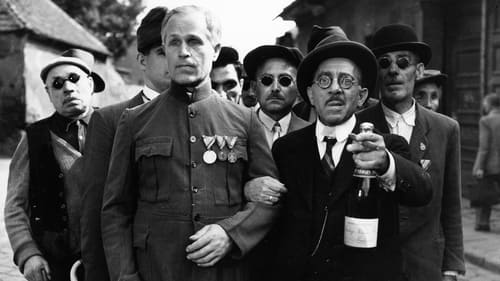
Menyus
A school teacher becomes a momentary hero after having rescued a stuffed-bird from a school incident.

Barczen (as Barsy Béla)
Sztankó János, the freshly appointed director of a company that builds agricultural factories meets his former classmate, Palócz. Palócz is just released from the prison where he got on made-up charges. Sztankó suddenly decides to employ the engineer since he wants to show up spectacular, quick results.
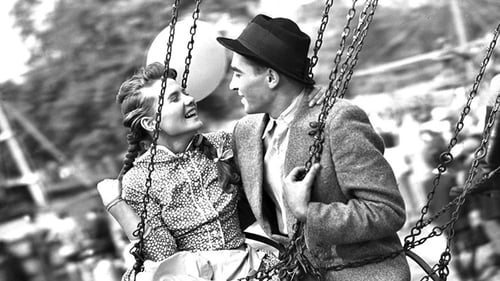
Pataki István
마리의 아버지는 딸의 중매결혼을 통해 자신의 땅을 늘리고자 한다. 그렇지만 마리는 사랑하는 남자가 따로 있다. [1968년 헝가리 최고 영화 12선 선정, 2000년 부다페스트 최고 영화 12선 선정]
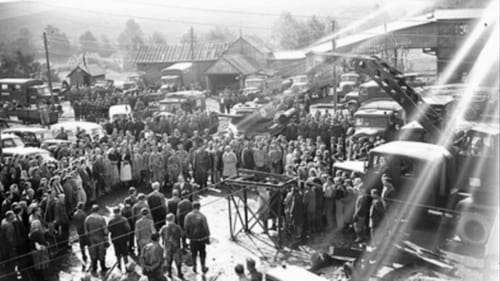
Ambrus
September 1952 in a mine in Northern-Hungary after an explosion water breaks in from the neighbouring shaft and fourteen miners become trapped. The whole country unites to save them.

József Espersit
Venice Film Festival 1954
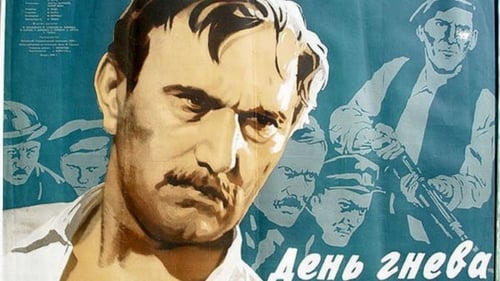
Józsi Szedlacsek (as Béla Barsy)
In May 1919 in a small rural town beside Salgótarján the local high society wants to get the power back with the leadership of dr. Máriáss, exploiting the outside attack launched against the Republic of Councils.
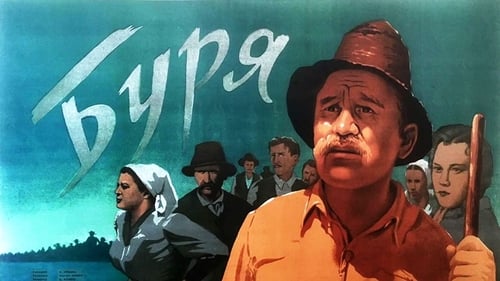
Illés Kálmán
Vörös Hajnal (Red Dawn), a co-operative is the venue of skylarking, while the storm destroys the wheat which is to be harvested soon. Árendás, a middle-peasant, voices severe accusations against members of the co-operative: out of negligence, they failed to keep the ditches clean. It is always the soft option they seem to favour, while the necessity of properly taking care of the farmlands is long-forgotten. Members of the co-operative and the village people are deeply divided.


























